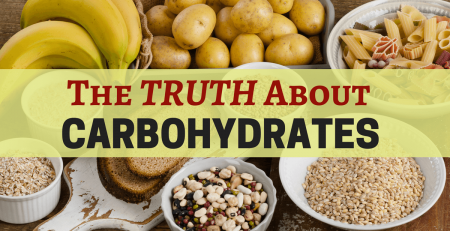Dangers Of Eating Too Much Sugar!
Excess Sugar Harms Every Tissue Of The Body
Sugar is nearly hundred per cent simple carbohydrate and provides no other nutrient.
It therefore has no nutritional value and plays no role in our nutrition.
Excess sugar consumption adversely affects every tissue of our body.
Sugar is metabolised in the liver and excess sugar is converted into fat and this leads to excess accumulation of fat in the liver. This can lead to a condition called non alcoholic fatty liver disease. This leads to inflammation of the liver tissue and eventually scarring of it which can lead to liver cirrhosis and will finally need a liver transplant.
When we eat calories that the body doesn’t need immediately, these excess calories are converted into triglycerides, a circulating fat in the blood and stored in fat cells in the body. Body releases energy from this store of triglycerides when the body needs calories between meals.
When we eat excess sugar regularly, the blood levels of triglycerides increase and this leads to raised levels of LDL or the bad cholesterol in our blood.
Sugar also inhibits an enzyme that releases energy from triglycerides.
This leads to further increase in the blood triglycerides levels.
Thus eating excess sugary food increases the levels of triglycerides.
LDL cholesterol causes plaque formation in the walls of the coronary and brain arteries and leads to heart disease, heart attacks and strokes.
HDL cholesterol clears the LDL cholesterol deposits from the coronary and brain arteries and removes them to liver which breaks it down to be removed from the body, thus preventing heart disease, heart attacks and strokes.
Excess sugar in your food increases the levels of the LDL or the bad cholesterol and suppresses the levels of the HDL or the good cholesterol in the blood.
So the high levels of LDL cholesterol and low levels of HDL cholesterol lead to heart disease, heart attacks and strokes.
Excess sugar leads to raised levels of insulin in the blood and this causes inflammation and damage to the arterial walls all over the body, they thicken and become hard and less elastic.
This puts excess pressure on the heart and raises the blood pressure. Inflammation also damages the endothelium, the innermost lining of the arterial walls and this leads to platelets and white cells of the blood clumping together and forming clots and plaque formation in the arteries and heart disease, myocardial infarcts and strokes.
Eating sugar causes a surge of a feel good chemical called dopamine to be released in the brain. It gives you a feeling of pleasure. The brain doesn’t release the same amount of dopamine if you eat complex carbohydrate foods or even fruits. And gradually you need more sugar to get the same amount of dopamine surge to get the same amount of pleasure. This is the reason why you get the cravings for eating something sweet from time to time in a day.
It is because they have been accustomed to eating excess sweet before and used to the pleasure derived from eating them.
This may explain the strong cravings for sweets that many people feel when they try to lose weight on balanced, wholesome food. It is because they have been accustomed to eating excess sweet before and used to the pleasure derived from eating them.
Eating a cookie or a candy gives you a burst of energy due to sudden surge in blood sugar but soon the cells absorb the excess blood sugar and you experience sugar crash, translating into a low, jittery feeling.
Continuous consumption of excess sugar has been linked to depression.
Excess sugar also leads to dental caries.
Excess sugar also causes inflammation of the joints and increase the joint pains. It is also linked to increased risk of developing rheumatoid arthritis.
Excessive sugar intake leads to increased excretion of calcium, magnesium and potassium in urine and loss of calcium and magnesium lead to osteoporosis.
Research has also proved that excess sugar consumption also reduces the availability of active Vitamin D in the body, increased calcium loss from bones, poorer quality of bone formation and increased risk of fractures.
Earlier researchers thought that salt is more damaging to the bone health, but now they have found out that sugar is the bigger threat to the bone health!
It also increases the levels of cortisol as well as insulin in the body, high levels of both hormones are damaging to the body.
It also damages the collagen and elastin fibre in the skin those keep the skin looking younger and wrinkle free. Damage to these tissues leads to wrinkling and ageing of the skin.
High sugar intake raises the blood sugar which causes inflammation of the skin as it causes in all other tissues of the body. So it causes inflammation in the skin of the scalp too and this leads to drying up of the scalp, dandruff and damages the hair root follicles, leading to hair loss, thinning of hair and loss of quality of the hair.
Excess sugar also adds excess calories to your daily intake. Calories coming from sugary liquids like tea, coffee, aerated cold drinks do not satisfy hunger like solid food can. Thus you tend to consume more solid food, as the brain doesn’t register the liquid calories, adding too many calories to your food and this leads to weight gain.
Excess sugar also causes inflammation of the fat cells which release harmful chemicals which cause weight gain.
This in turn is detrimental to the health of your joints and vertebral column and leads to diseases like osteoarthritis of the knees and degenerative diseases of the vertebral column like prolapse disks.
Cholecystitis is common amongst the obese, especially women.
Obesity also leads to hypertension, diabetes, heart disease and strokes.
And you can consume sugar not just under the name of sugar but also under the names of jaggery, honey, glucose, fructose, maltose, sucrose, corn syrup, maple syrup, beat sugar etc. fifty or sixty names.
So stop eating too much sugar and sweet foods.
Also read article ‘Basics Of Nutrition’ on this website.

















Leave a Reply